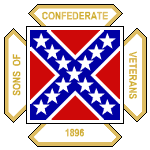Well, perhaps my posts late last night weren't particularly well expressed, writing as I was "under the influence" of half a bottle of red wine [2006 Blauer Zweigelt


], so I might as well try to rephrase with a sober mind:
I am under no illusion that racial conflicts played a big part in EVERY aspect of US life back in the twenties, but there simply was no segregation in autoracing, period. It's all bullshit, horse manure, elephant droppings or whatever - that's "irrelephant" as Chico Marx would put it.
Let's try to clear the semantics here, first: "segregation in autoracing" as I understand it to be relevant in the context of this issue, and in the way the word was used in the Wiggins book and the linked article is not about the
difficulty for Afro-Americans (or other ethnical minorities) to compete at the higher echelons of autoracing (including, and most importantly, Indy), but the supposed
impossibility! The former I duly acknowledged for everyone to see, and we don't need to discuss it, but the latter is stark nonsense!!!!
Examples for Afro-Americans at Indy are difficult, perhaps impossible to find for the period, but so are Asian-Americans and other minorities to this day - are we to assume there is still segregation in racing??? And what about John Boling (driver) and Clifton Richards (owner), Native-Americans who competed uninhibited at Indy and throughout the country in the late teens/early twenties? Did
they "forget" to segregate them???
Apropos "
they" - who is that? Everybody is being careful to avoid being clear about that, which is oh so typical! Reading in the Wiggins book it is full of unclear accusations, quotes out of context from "names" to enhance the story and more stuff like it, absolute "phoney baloney"! It all reads like one big hoax story, although I'm sure there is some "truth" in it, but I will get to that later.
So, what do we know about Afro-Americans in open-wheel racing? Joie Ray competed in AAA events in the fifties, possibly late forties already. I have found him in the entry list for a 1950 race in Iowa, and the results of a 1954 race in Indiana. If you want, I can dig up the sources again and reproduce them here, no problem, it will just take some time. That's post-WW2 done with, then.
Rajo Jack competed in CARA (California Auto Racing Assoc.) and ARA (American Racing Association) all through the thirties and forties, that's literally one step below AAA and I have numerous entries and results for him. I thought I also had him in outright AAA competition, but can't find that right now, perhaps he didn't quite make it, and it doesn't really matter - AAA didn't have much of a presence in California during most of his career, and he never raced anywhere else. That's the thirties done with, too.
And now I find this:

"C. Wiggins, Wiggins Special, Indianapolis" - we don't need to discuss who this fella is, right? Bang in the midst of a field of "name drivers", in the entry list for a race at the Illinois State Fair in 1925! That's also "one step below AAA/Indy", and for Dutch Baumann it would take less than two years to get there. Easy-peasy if you are really good, and just like today you spot a talent in Formula 2 or whatever they call it these days, and next thing you know he drives Grands Prix.
And now you go through that list of drivers, and see some names like Harry Nichols, Charlie Wiggins, Ralph Ormsby, Frank Schenk, Glenn Hiett or Orville Zook who all didn't make it to Indy, and you wonder why. Surely some of these drivers, especially Ormsby and Hiett, had inifinitely better records in racing than Wiggins, yet I have seen photographs of them and they weren't black! Mud spattered, yes, but definitely not black.
So, how come they never made it to Indy? Green hair, perhaps? Or, body odor? That's it, the unwritten laws of BODY ODOR prevented them from competing at Indy! Segregation!!! Let's write a book about how body odor prevented the sure-fire Indy careers of Ralph Ormsby and Glenn Hiett, and how bad the world was back then in the dark ages to prevent some poor race drivers from becoming the rightful stars they were always meant to be. Boo!
That's the Charlie Wiggins story, in a nutshell. It even gets really hilarious when it comes to his supposed role in the 1934 Indy win of Bill Cummings, when the Bullshit-O-Meter scores sky-high. "Hey, let's take this Cummings guy, he's dead for seventy years already, nobody will be able to prove us wrong!"

So, what remains after careful deduction of the superinflated claims, badly researched "facts" and unrelated quotes? The story of the CSA, the Colored Speedway Association, which I believe to be pretty much authentic, basically. The one thing that's not authentic is the background as to why it was established: not segregation, but economic thinking!
Back in the days, there were dozens of "sanctioning bodies" like the CSA, if probably none with that ethnical background. Many drivers and car owners that didn't quite make it to the top would band together and, with the help of local promoters, form their own little "circuit" of races. Some had their own rules, too, like the "8 valve circuit" that was quite popular in the Ohio/Indiana region in the late twenties: it outlawed expensive 16-valve engines, thus making for some good and cheap racing. Nothing to do with segregation, of course...
Now you take guys like this Rucker (? - I may have forgotten his exact name), who saw an excellent business opportunity in organising races only for black drivers, because he could attract a special audience for these races, and generate good purses. Drivers like Wiggins surely made more money driving at the sharp end of CSA events than trying to battle for outright honours in "open events". Yes, "open" like in: no restrictions on cars, engines, owners and drivers, and
no segregation! A fascinating story for sure, but only for anoraks like you and me - sells a couple of thousands of copies, max. "Better put in some real HUMAN INTEREST, like segregation, and we'll make the bestseller lists - and a movie to boot!"

Originally posted by HDonaldCapps
Michael, you simply don't get it. Go ahead and pout and make your usual snide, snippy little remarks that you love to dole out when someone challenges your assumptions. Try to to get your head out of the clouds -- I assume and hope that is where it is, and actually take a second from your effort to show us just how much smarter and superior you are as well as what ignorant, know-nothing beings we are to you, and consider what Jim is trying to bring up for discussion.
And now you, Mr. Capps, take back your slurs and supercilious remarks - you may talk to your underlings at military as you see fit, but this is not "your turf", at least not any longer. If you have anything to say, say it in a civilised manner, and keep to the subject! We may have differences in opinion, but there's no use in getting personal. If you don't accept my assessment, here's the place to present
your analysis, and we can discuss. As for above quote, I resent you talking to me in public like that, and I demand an apology!!





















